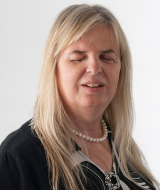Before diversity can flourish
It is true enough that much of the electorate don’t recognise people like themselves in politics. They do not hear authentic voices that connect with their lived experience. Politicians talk incessantly about reflecting Britain better, but they remain blinkered to the...
It is true enough that much of the electorate don’t recognise people like themselves in politics. They do not hear authentic voices that connect with their lived experience.
Politicians talk incessantly about reflecting Britain better, but they remain blinkered to the exclusionary policy and practice that prohibits progress. This will only change with a renewed vigour to breakdown barriers that block the way to diversity.
Much attention is rightly given to achieving a 50/50 gender balance, with some focus on better BME and LGBT representation. Disability trails behind considerably. That’s why this blog looks at the state of play for disabled people in politics today and why things need to change.
We are not insignificant, as reported in the 2011 Census, there are 11.5 million people in the UK (18 per cent of the population) having a long-term health problem or disability. It is a population with powerful potential, so political parties should be wary of forgetting disabled people’s needs and aspirations.
The disability movement motto advocates ‘nothing about us without us’. We are nowhere near that laudable ambition. Indeed, the participation of disabled people in public life has been faltering in recent times.
Developing processes and undertaking reviews about increasing diversity leads only to more vacillation on diversity. Labour’s failure to provide support at the recent general election for candidates to meet the extra costs arising from disability had a negative impact on disabled members. It was also a broken promise.
Labour has a strong message in attacking the Tories on the impact of austerity on disabled people. It reinforces the ‘nasty party’ doing dreadful things to ‘vulnerable people’. Pulling at the heart strings of voters means Labour can feel good about itself. Yet it can often feel disempowering to us.
Disabled people have a different take on matters. Contrary to myth, we do want to pursue mainstream education, secure and retain meaningful employment, have a family life and own a home. We aspire too, just like non disabled people.
That’s why I welcome Labour’s 2017 manifesto commitment to develop policy in the context of the social model and to strengthen the UN convention on the rights of persons with disabilities by enshrining it into UK domestic law. Perhaps only then will Labour start taking Article 29 on disabled people’s participation more seriously.
We are pawns on the board of political messaging, largely excluded from playing in the ‘quintessential’ rules of the game which have been constructed by non disabled leaders of political parties, trade unions and interests groups. Not only the Labour party, but trade unions too, need to practice what they advocate to others for the inclusion of disabled people.
Some shocking accounts of exclusion were highlighted by members of Disability Labour at its recent annual meeting. Negative attitudes and barriers were commonplace in constituency parties and uncomfortably evident in selections. Those stories were raw and painful. It is deeply sad that Disability Labour remains ineffective in responding to such deep rooted institutional discrimination.
Instead of confronting that ugly truth, we talk about the need for equality monitoring and then do nothing about it. Data might tell us how Labour is doing in chasing numbers, but it doesn’t really matter if people feel isolated and excluded.
The general election afforded Labour’s national executive committee with a great opportunity to secure greater inclusion of disabled people in politics. Whilst the numbers of disabled people selected as candidates doubled from 2015, up from 4 to 8 – representation of disabled people remains woefully low.
Inclusion of disabled people has been put aside in favour of political expediency and some parochial thinking. The snap general election brought well founded reports of deals between vested interests, which meant that factionalism triumphed over diversity.
Newly elected disabled Labour MPs have gone up from one to three by chance, not affirmative action. Marsha De Cordova who is partially sighted benefited from the strong swing in the capital to take Battersea, whilst Jared O’Mara who has cerebral palsy defeated the former deputy PM, Nick Clegg, in the marginal seat of Sheffield Hallam. They join Marie Rimmer who is deaf and elected for the first time in 2015 to St Helens and Whiston. We celebrate their election, but it is not nearly enough.
The drive for 50/50 gender presentation continues because balance is important for changing Britain for women, not just the benefit of men. The same principle applies to disabled people, but 0.46 per cent of Labour or 0.92 per cent across the house is way short of an 18 per cent fairness target.
We need disabled people elected, not for synthetic or feel good purposes, but to hear disabled people’s authentic voices articulate our lived experience. We don’t want more non-disabled people speaking on our behalf, as eager as they are to ascribe whether we ‘take sugar’ or not. We also need disabled people contributing to mainstream debate about Brexit, the economy and security, bio-diversity and the planting of trees.
The ‘tree of life’ represents diversity and how we all connect. It must embrace everybody in some way – not just the stem for an elite few, but for thriving branches that represent the many equality strands in Britain. Our policy tree on inclusion has wilted of late, so Labour needs to prune practices that exclude disabled people before diversity can truly flourish.
